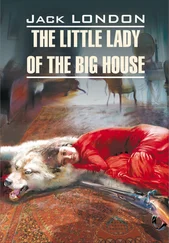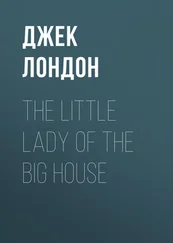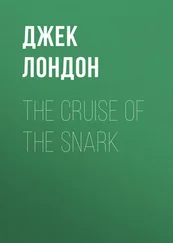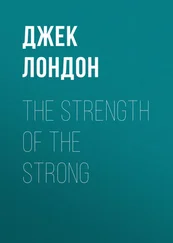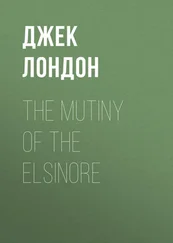That left Witold and Jan to come up with their own plan. There was no sense in continuing toward the border, which was sure to attract German attention sooner or later. So they made for the woods, where they could stage hit-and-run attacks and maybe find enough like-minded souls to plan a bigger operation. Over the following days they attacked several German convoys and even a small airstrip, blowing up a plane, but Witold knew such attacks didn’t achieve much. German checkpoints were springing up everywhere, forcing them to keep to the thickets and marshes and scrounge for food in the woods or from isolated peasants. To make matters worse, it rained constantly. Water coursed down their backs in rivulets and mud sucked at their feet. 34
At the end of September, they learned that Soviet forces had entered Poland from the east. Stalin claimed it was for the protection of Poland’s minorities, but his intention was clear to most Poles; the Soviet dictator had decided to seize his share of the spoils. Any hope that Witold harbored of rallying enough men to stage a rally promptly evaporated. He had other worries to contend with now: given his family’s reputation for resisting the Russians, Maria and the children were almost certainly in danger. 35
On September 28 Warsaw surrendered, and a few days after that the first snow fell. The city had held out for another fortnight after he’d left, much to the fury of Hitler, who had instructed his generals to darken the skies over Warsaw with falling bombs and drown the people in blood. The resulting aerial and artillery bombardment had left forty thousand dead and destroyed or severely damaged a fifth of the city’s buildings. Schools, hospitals, and churches had been bombed indiscriminately. The Old Town was a ruin, and the city’s new opera house, the largest in Europe, reduced to a few colonnades. Tens of thousands, newly homeless, squatted amid the debris. 36
Witold only heard rumors of the city’s devastation. Huddled with Jan in some woods near the town of Lubartów, dirty and unshaven, Witold realized that the fight to reclaim the country wouldn’t start there, but in Warsaw, where power resided. They ordered the men to dig holes and bury their weapons, and then they exchanged their uniforms for civilian clothes from the locals. Witold received an old sheepskin jacket. 37
As they headed west again, the men peeled off one or two at a time for home. Before reaching Warsaw, Witold decided to make a detour to Ostrów Mazowiecka, the town sixty miles to the north of the capital where Maria’s mother, Franciszka, lived, hoping to find Maria and the children. He and Jan clasped hands and agreed to meet at his mother’s flat in Warsaw in a couple of weeks’ time. “We will finish what we have started,” promised Jan. 38
***
Witold set off through the fields and picked his way through the brush for several days to reach the Bug River near Ostrów Mazowiecka. The swiftly flowing waterway had recently become the new border between German and Soviet forces. Russian troops patroled Witold’s side of the bank. He hid until darkness fell and then persuaded a local fisherman to ferry him across the water in his skiff during a gap in the patrols. The vessel bobbed and weaved in the currents, but they made the far bank, where the Germans had strung lines of barbed wire. Witold found a way through and hurried on to Ostrów Mazowiecka, a few miles farther. 39
He found the place eerily quiet. Half of the town’s seventeen thousand residents were Jewish, and most had fled to Soviet-occupied territory. Their shops and homes had been looted and in some cases occupied by Polish families. Franciszka lived in a farmhouse on the outskirts of town. As Witold arrived he saw German vehicles parked in the yard of the brewery opposite the house, which had become the headquarters of the German secret police, or Gestapo. He made sure to enter the farmhouse from the rear. Franciszka was there—alive and safe—but she had no word on Maria. Witold went to sleep on the sofa in the living room while Franciszka poured herself a stiff drink. 40
Over the following days he learned about the brutal new racial order the Nazis had imposed on the town. The Germans had rounded up several hundred townsfolk, locked them in the school gymnasium, and divided the group into ethnic Poles and Jews. Most of the Catholics were quickly released, but the Jews were selected for work gangs. The Germans encouraged the ethnic Poles to abuse and beat the Jews and point out their shops for looting. As Jewish families were evicted from their homes, some of their Catholic neighbors jeered at them. Most residents, though, refused to follow the German lead. The town’s mayor hid a family in his basement. Maria’s parents did what little they felt they could, letting Jews fleeing through the town take apples from the orchard. 41

The Ostrowski family house.
Witold doesn’t say much about his time in Ostrów Mazowiecka. He likely felt dismayed by exhibitions of anti-Semitism among the locals, which clearly played into the Germans’ hands. Each morning he woke up praying for Maria to come walking through the door with the children, and each night he went to bed fearing the worst. 42
Eventually, he must have surmised that Maria had remained in Krupa, perhaps hiding among friends, and he had to choose between waiting for his family and resuming the struggle against the Germans. He knew that the chance of finding her and the children if they were traveling was perilously small given the numbers of refugees streaming across the border. Either way, the decision was clear: country before family. On the morning of November 1, he borrowed a bicycle and set off for the long ride to Warsaw to meet Jan. It was All Saints’ Day, when graveyards blossomed with candles and the living prayed for the dead, but Witold had no time for that: he was heading to Warsaw to fight. 43
Chapter 2
Occupation
WARSAW
NOVEMBER 1, 1939
Witold approached the city on his clattering bicycle unsure what he would find or what form his resistance would take. The main road to Warsaw was dotted with German checkpoints, so Witold stuck to country lanes, picking up snatches of news. There was no word of any attack from the British or French, but he assumed one was coming. The best chance of driving out the Germans lay in planning an uprising to coincide with an Allied offensive. Witold knew there would be others who felt like he did and that he needed to start building a network. 1
Witold merged with the crowds crossing the single bridge still standing over the Vistula. The sight of Warsaw’s broken skyline on the far bank must have startled him. The city center had born the brunt of the German bombardment. Collapsed buildings blocked the streets and people had made trails through the banks of rubble. Hundreds paused at the intersection of Marszałkowska Street and Jerozolimskie Avenue to light candles before a giant mound of bricks and masonry that marked the city’s largest mass grave. Glass from broken windows screeched underfoot. Reich propaganda chief Joseph Goebbels, visiting the city around then, concluded, “This is hell. A city reduced to ruins. Our bombs and shells have done a thorough job.” Even in those bits of Warsaw left untouched, a change had taken place. “At first sight everything looked as it had before, but it was somehow different, submerged in the strange atmosphere of a city in mourning,” recalled one witness. 2
Witold made his way to a friend’s apartment in the south of the city. His shock and dismay at the devastation were tempered by the practical need to understand the Nazis’ plans and decide what form his resistance would take. Hitler’s terrifying racial vision for the country had come into focus. In September, he had ordered Western Poland annexed to the Reich and over five million Catholic Poles and Jews expelled to make way for German settlers. The remaining territory, which included Warsaw and Krakow, was to become a German colony. Hitler had made his former lawyer, Hans Frank, administrator for the “General Government for the Occupied Polish Territories” and had given him orders to exploit it ruthlessly and impose a brutal racial hierarchy. 3
Читать дальше




